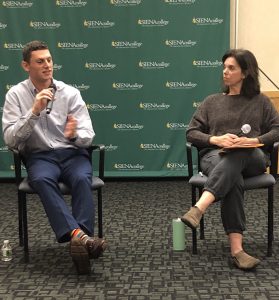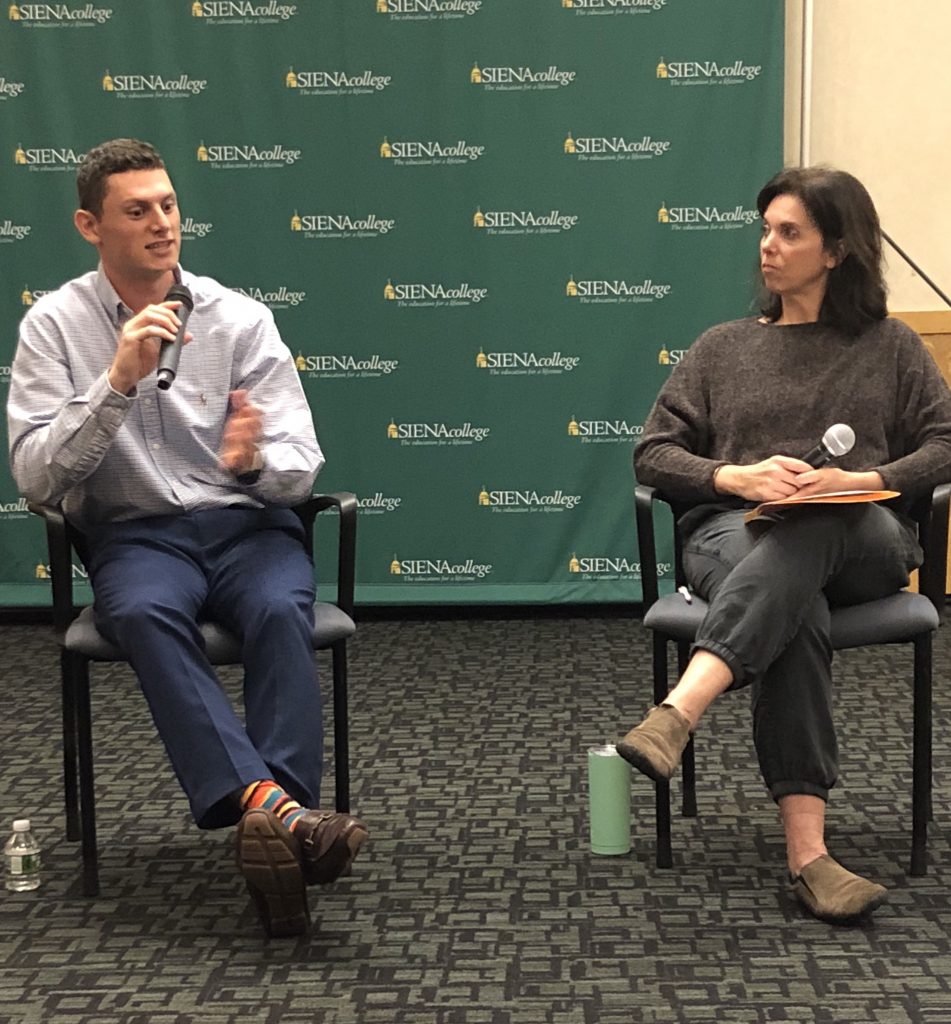At an open forum, “How I Healed My Brain After Drugs,” Siena alum Garrison Grant ’17 described a compelling account of overcoming mental illness and substance abuse. The 26-year old Saratoga Springs resident explained that he did not have much knowledge regarding mental illness. It was not until a horrific encounter with synthetic marijuana that he realized the severity of substance abuse and the impact it has on one’s brain.
Grant began his career in higher education at the College of Brockport. During his first year at college, he began drinking. Grant had seen his suitemates and peers doing it so he decided to join as well. Partying and drinking began to be his new routine and he fell into an endless spiral of sleep deprivation. The days within spring and summer of 2011, Grant began adding marijuana to his routine as well, though Grant did not see much of a problem until August of 2011 when he smoked synthetic marijuana. He thought that since it was legal and being sold in a smoke shop, it would be safe. Yet this was far from the truth. After smoking the marijuana for a couple days, Grant began to experience symptoms such as racing thoughts. This led to him going to a mental health unit in Saratoga Springs. He later found out that the drug leads to induced psychosis.
Instead of letting the experience negatively affect him, Grant has used the experience to empower him and many others. Grant graduated Siena in December 2017 with a degree in marketing, concentrating in entrepreneurship. His experience with entrepreneurship has led him to a platform he created called “Let’s Chat About It.” He described it as a “peer support network for people going through mental health or substance abuse problems and reach out to people to see what worked for other people.” An influential tool that the platform provides is video chat. One can speak to a professional about their symptoms and concerns immediately. The peer networking program not only benefits the one who has been experiencing mental illness or substance abuse problems, but it also can be used as an educational tool for friends and family. Grant explained that his mother used it to get a better understanding of synthetic marijuana and its harmful effects.
The seven-year journey of recovery has made Grant incredibly resilient. He has changed about every aspect in his life to remain sober. Although some of his friends are no longer in his life, he has found an amazing support group that encourages his sobriety. Grant has noticed that since his experience, relationships changed for the better. He has found deeper connections with his friends and can confide in them without hesitation. One friend suggested going for a bike ride instead of going out for a drink like they would have done in the past. Grant explained, “Your relationship changes and you find different things to do.” He also realized that he needed to improve his diet as well. Grant has found a big difference in his mental health since he began eating gluten-free.
Grant’s goal in creating this peer networking program was to help decrease the stigma of mental illness. By normalizing mental health, it will make one more likely to reach out for help. Grant acknowledged, “It is okay to not be okay.” Looking back, Grant realized that he experienced a lot of anxiety growing up, but never knew what it was. He was never educated on mental illness in school so he was never able to identify it. Although Grant did not have the educational program when he was in the depths of his struggle with mental illness, he hopes that other people will use it during theirs. If you would like any information about the peer networking program, you can go to www.letschataboutit.com.


